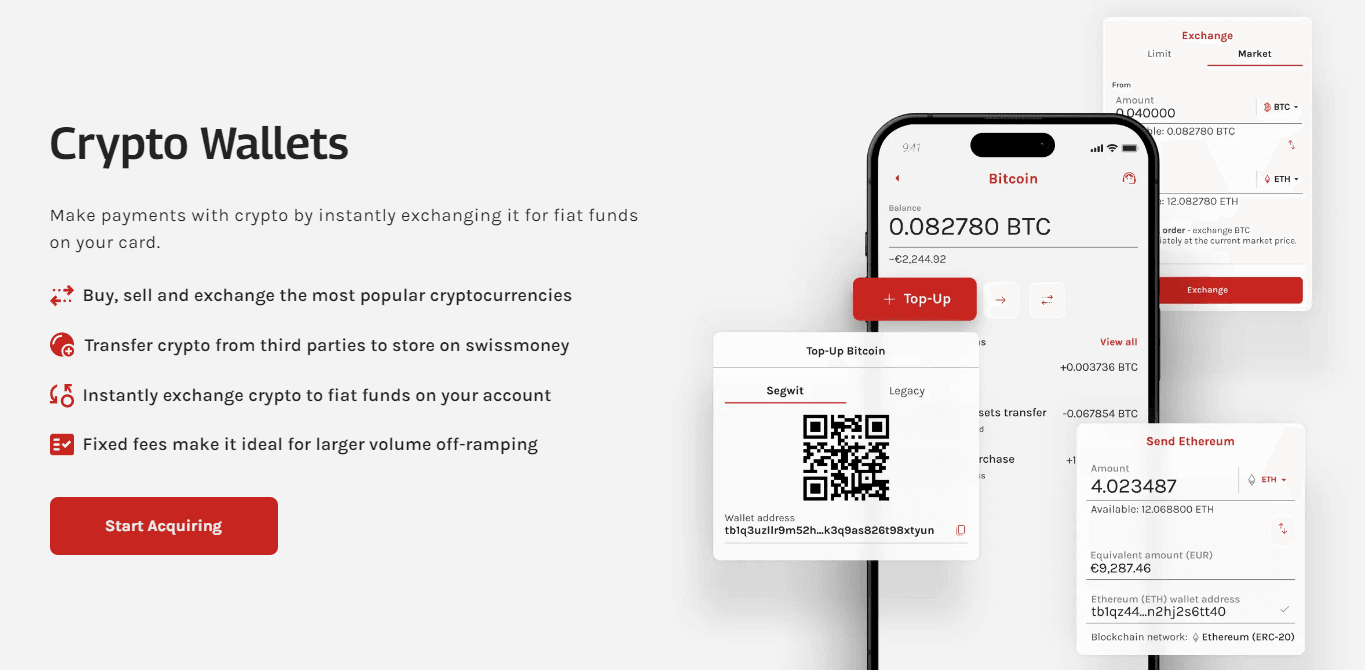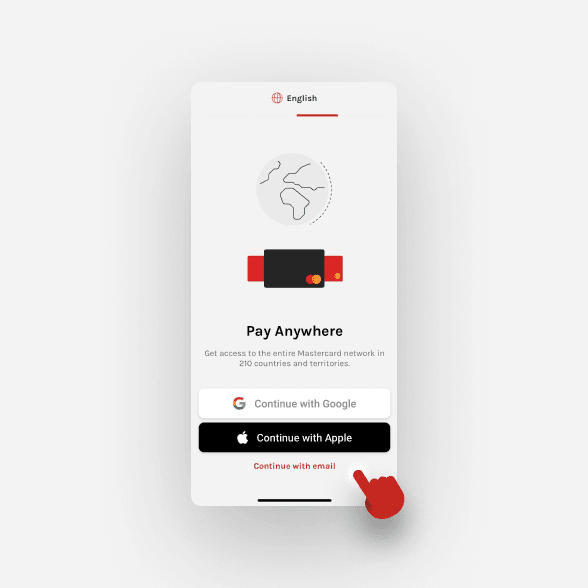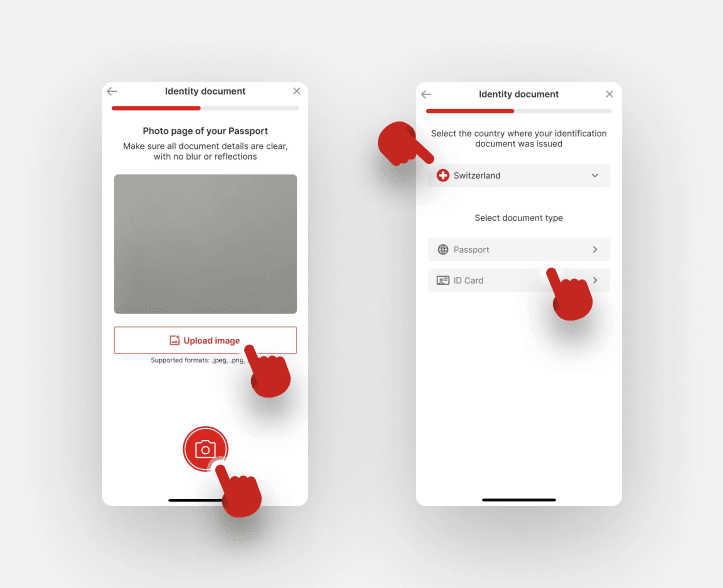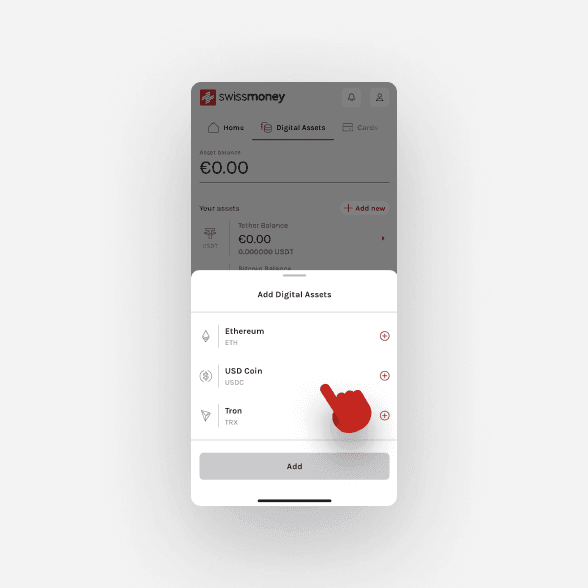[key_takeaways]
- Ethereum payments: Understanding crypto payments is essential for businesses and freelancers looking to accept cryptocurrency payments.
- Ethereum payment gateway: Utilizing an Ethereum payment gateway facilitates secure transactions and simplifies the acceptance of ETH payments.
- Crypto payroll: Companies can integrate Ethereum into their payroll systems, allowing employees to receive their salaries in ETH.
- Ethereum wallets: Secure Ethereum wallets are crucial for efficiently receiving and managing ETH payments.
[/key_takeaways]
As the crypto world expands, Ethereum has emerged as a preferred method for crypto transactions and payments, especially for businesses looking to accept Ethereum payments.
Recent statistics show a significant increase in businesses and individuals adopting Ethereum due to its robust blockchain technology and application versatility.
Whether for e-commerce, freelancing, or payroll, understanding how to integrate Ethereum payments can offer substantial advantages in the fast-paced digital economy.
This guide explores practical and efficient ways to accept and manage ETH payments.

Why do people want to be paid in Ethereum (ETH)
Ethereum is increasingly popular for payments, offering distinct advantages over traditional banking systems:
- Decentralization: Ethereum's decentralized nature enhances security and transparency, giving users full control over their transactions without interference from centralized authorities.
- Faster international transactions: Ethereum processes transactions much faster than traditional systems, making it ideal for businesses and freelancers who deal with global clients.
- Lower transaction fees: Ethereum often incurs lower costs than conventional banks, especially for large or international transfers.
- Smart contracts: Ethereum supports these contracts that automatically execute when specific conditions are met, ensuring secure and timely payments.
- Enhanced privacy and security: With strong cryptographic security, Ethereum provides greater privacy and reduces the risk of fraud.
- Investment potential: Holding Ethereum might increase in value over time, presenting an investment opportunity.
- Crypto economy inclusion: Using Ethereum allows businesses to engage with the fast-growing digital currency market, reaching new customers who prefer crypto payments.
These benefits make Ethereum a favorable option for modernizing how companies accept Ethereum and other crypto payments in a digital, global economy.
📚Read More: How to Send Ethereum Easily
What are the different ways to be paid in Ethereum (ETH)?
Ethereum's versatility as a payment method supports various payment options suitable for individuals and businesses. Here are some primary ways to receive payments in Ethereum:
- Direct wallet transfers: The simplest method is direct wallet transfers, which involve sharing your Ethereum wallet address with payers who can send ETH directly to you. This method is fast, efficient, and cost-effective.
- Crypto payroll services: Businesses can use crypto payroll services to pay employees in ETH. These services integrate with traditional payroll systems to convert and deposit salaries directly into employees' digital wallets.
- Ethereum payment gateways: Online merchants can utilize an Ethereum payment gateway to accept Ethereum payments on their e-commerce platforms. The gateway facilitates the integration of Ethereum into e-commerce platforms and manages the seamless conversion of fiat to Ethereum.
- Smart contracts for freelancers and contractors: These contracts allow freelancers and contractors to automatically receive ETH payments upon the completion of work, ensuring timely and contract-compliant payments.
- Cryptocurrency exchanges and trading platforms: Individuals can receive Ethereum through services or sales on cryptocurrency exchanges. Ethereum received can be held, traded, or converted into fiat.
- Decentralized Finance (DeFi) platforms: Engaging with DeFi platforms offers another avenue to earn ETH through activities like lending, borrowing, and yield farming, which provide interest or rewards in Ethereum.
- Accepting tips or donations: Content creators and digital performers can accept tips or donations in Ethereum by sharing an Ethereum address or QR code, allowing for direct audience support.
Each method caters to different needs, offering flexible solutions for integrating Ethereum into various financial transactions and operations.

How to get paid in Ethereum (ETH) step by step for beginners
Navigating receiving payments in Ethereum (ETH) can seem daunting for beginners. However, you can start accepting Ethereum efficiently and securely with a few straightforward steps.
Understanding the Ethereum payment method is crucial for those looking to integrate Ethereum into their financial operations, whether managing personal crypto earnings or a business account.
Step 1: Choose a crypto wallet
Before receiving Ethereum payments, select a crypto wallet supporting Ethereum (ETH). A crypto wallet stores your digital currencies and keeps your private keys secure. There are several types of wallets to choose from, including:
- Hardware wallets offer robust security by storing your keys in a physical device disconnected from the internet.
- Software wallets are applications you can download to your computer or smartphone, offering convenience and relatively strong security.
- Web wallets provide access through a browser interface without downloading software, although they are generally less secure than other wallet types.
📚Read More: How to Choose the Right Crypto Wallet
Step 2: Set up your crypto wallet
After choosing the type of wallet that best suits your needs, the next step is to set it up:
- Download and install the wallet software or purchase the hardware wallet.
- Create your wallet account. During this process, you will generate a new wallet with a unique public address and a private key. Ensure to follow all security instructions, including writing down and safely storing backup recovery phrases.
- Secure your wallet by setting a strong password and enabling two-factor authentication.
📚Read More: How to Create Ethereum (ETH) Wallet
Step 3: Share your Ethereum address
Once your wallet is set up, you need to obtain your Ethereum address from your wallet:
- Locate your Ethereum public address in your wallet. This address is what you will share with others to receive payments.
- Share your address with the payer. You can send it via email, text, or as a QR code that they can scan. Make sure to double-check the address to avoid errors.
Step 4: Verify and receive payments
After providing your Ethereum address to someone, monitor your wallet to confirm that the funds have arrived:
- Check your wallet balance. Transactions on the Ethereum network are usually confirmed within minutes, depending on the network traffic and the gas fee paid.
- Verify the transaction in your wallet or by using an Ethereum blockchain explorer like Etherscan. You can enter your public address into the explorer to see all incoming and outgoing transactions.
By following these steps, you can start receiving payments in Ethereum as a beginner. Remember, the key to managing cryptocurrencies safely is understanding the tools and practices that keep your digital assets secure.
Getting paid in Ethereum: Discover swissmoney wallet

The swissmoney wallet offers a streamlined solution for managing Ethereum payments, combining crypto and fiat functionalities in one platform. Here’s why it stands out:
- User-friendly: Navigate Ethereum transactions easily with an intuitive interface.
- Robust security: Protect your funds with encryption, two-factor authentication, and biometric safeguards.
- Versatile financial operations: Manage crypto and fiat from one account, with support for multi-currency IBANs and quick conversions between ETH and fiat.
- Global transactions: Perform international transfers efficiently via SEPA without traditional banking limits.
- Integrated payment tools: Ideal for freelancers and merchants looking to accept Ethereum payments seamlessly.
swissmoney wallet simplifies receiving Ethereum and enhances your financial flexibility and security.
How to set up a wallet to receive Ethereum (ETH) at swissmoney
Setting up a wallet to receive Ethereum on swissmoney is straightforward and can be completed in just a few steps. Follow these directions to start receiving ETH payments quickly and securely.
STEP 1: Sign up for swissmoney

Begin by creating an account on swissmoney. Click on the sign-up button, and enter the required details. You must provide basic information, such as your email address, and then create a secure password.
STEP 2: Complete the verification process

To ensure the security of your account and comply with financial regulations, swissmoney requires a verification process.
You will need to verify your identity by submitting the necessary documents, which may include a government-issued ID and a recent utility bill. This step is crucial for enhancing the security of your transactions and accounts.
STEP 3: Set up your Ethereum wallet

Once your account is verified, you can set up your Ethereum wallet within the swissmoney platform. Navigate to the wallet section on your dashboard, select 'Add Currency', and choose Ethereum from the list.
swissmoney will then generate a unique Ethereum address for your account. This address is where you will receive your Ethereum payments.
These simple steps will enable you to efficiently set up a wallet on swissmoney and start receiving Ethereum payments.
📚Read More: How to Buy Ethereum (ETH) Instantly
What are the pros and cons of being paid in Ethereum (ETH)?
As the popularity of cryptocurrencies continues to grow, more people and businesses are considering Ethereum (ETH) as a payment option.
Understanding the advantages and disadvantages of accepting Ethereum payments can help you decide if it’s the right choice for your financial transactions.
| Pros | Cons |
| Global and fast transactions | Volatility |
| Lower transaction fees | Regulatory uncertainty |
| Decentralized and secure | Technical complexity |
| Smart contract capabilities | Limited acceptance |
Pros:
- Enhanced privacy and security: Ethereum transactions are secure, thanks to advanced cryptographic techniques that protect against fraud and hacking.
- Immediate accessibility: As soon as a transaction is confirmed on the blockchain, funds are immediately accessible, unlike the processing times associated with traditional banking.
- No banking fees: Ethereum cuts out the middleman, meaning there are no bank fees associated with receiving payments, just network transaction fees, which are often lower.
Cons:
- Market fluctuations: Ethereum's value can significantly fluctuate, which may increase financial risk if payments are not converted to fiat currency swiftly.
- Complexity and learning curve: Setting up and using an Ethereum wallet can be daunting for those unfamiliar with blockchain technology.
- Tax implications: Managing tax obligations for Ethereum can be complicated, as cryptocurrency regulations can vary by jurisdiction and are subject to change.
Evaluating these pros and cons will help you make an informed decision about integrating Ethereum into your payment or payroll systems.
What you need to know before you get paid in Ethereum (ETH)
Adopting Ethereum (ETH) as a payment method can enhance your financial operations with speed and global reach.
However, embracing this cryptocurrency involves several crucial considerations that ensure safe and effective use.
Security
Security is paramount when handling cryptocurrencies like Ethereum. To protect your assets:
- Choose reputable wallets with robust security features.
- Always secure your digital wallet with 2FA.
- Regularly back up your wallet and securely store your recovery phrases.
- Be cautious of phishing scams and only interact with secure, verified platforms.
📚Read More: How to Stay Safe from Bitcoin Scams And Frauds
Volatility
Ethereum is known for its price volatility, which can significantly affect the value of your payments:
- Be prepared for rapid changes in Ethereum's value.
- Consider strategies for converting ETH to fiat to avoid potential losses due to price fluctuations.
- Explore options to hedge against cryptocurrency volatility if you plan to hold Ethereum for long periods.
Tax implications
The tax treatment of cryptocurrencies is still evolving, and Ethereum is no exception:
- Keep detailed records of your transactions, including the value of Ethereum at the time of the transaction.
- Familiarize yourself with the cryptocurrency tax regulations in your jurisdiction.
- Seek advice from tax experts familiar with cryptocurrency regulations.
Technological understanding
Using Ethereum effectively requires a basic understanding of blockchain technology:
- Learn about Ethereum and how blockchain works.
- Keep up with changes in the Ethereum network, such as upgrades and protocol changes.
Network fees
Ethereum transactions require payment of 'gas', which can vary:
- Monitor Ethereum gas prices to optimize the timing of your transactions.
- Include transaction fees in your financial planning when accepting Ethereum payments.
Most popular crypto for getting paid in crypto
While Ethereum offers many advantages, other cryptocurrencies are also popular for payments:
- Bitcoin (BTC): Often preferred for its liquidity and widespread recognition.
- Litecoin (LTC): Chosen for its faster transaction times than Bitcoin.
- Stablecoins (e.g., USDT, USDC): Used for their price stability linked to fiat currencies like the US dollar.

Is it safe to get paid in Ethereum (ETH)?
Receiving payments in Ethereum (ETH) is generally considered safe. But, like all financial transactions, it comes with its set of considerations.
Safety largely depends on the measures taken by both the sender and receiver to secure their transactions and digital wallets.
- Blockchain security: Ethereum operates on a blockchain, which is inherently secure because of its decentralized and cryptographic nature. Transactions are permanently recorded and publicly verifiable.
- Personal security practices: The safety of receiving ETH also depends on how securely you manage your private keys and the passwords that give access to your cryptocurrencies. Using a secure wallet, enabling two-factor authentication, and never sharing your private keys are crucial steps.
- Smart contract reliability: If payment is conducted through smart contracts, the security also depends on the contract's code. Well-audited and tested contracts reduce the risk of bugs that could lead to lost funds.
What are the risks of getting paid in Ethereum (ETH)?
While receiving payments in Ethereum offers numerous benefits, there are inherent risks associated with it that must be considered:
- Volatility: Ethereum's price can be highly volatile. If the value of Ethereum drops significantly after receiving a payment, the worth of that payment decreases, affecting your income or profit margins.
- Regulatory changes: The legal landscape for cryptocurrencies is still evolving. New regulations or bans can affect the ability to use or convert Ethereum in your country.
- Technical issues: Issues, like lost private keys, wallet incompatibilities, or failed transactions, can pose significant risks. Without the private key, access to the Ethereum is permanently lost.
- Scalability and network congestion: The Ethereum network can become congested during high transaction volumes, leading to slower transaction times and higher fees.
- Phishing and security threats: Users must be vigilant about security. Phishing attacks can trick individuals into giving away sensitive information, leading to stolen funds.
What tax do I pay when getting paid in Ethereum (ETH)?
Understanding the tax implications of receiving payments in Ethereum (ETH) is crucial for compliance and financial planning.
The specifics can vary significantly depending on your country's laws, but here are some general principles that apply in many jurisdictions:
- Income tax: In most countries, receiving payment in Ethereum is treated as income. The value of the Ethereum at the time of receipt is typically considered as the income amount for tax purposes. You must report this as income on your tax return, like wages or business income.
- Capital gains tax: If you hold the Ethereum and it increases in value before you sell or exchange it, you may be subject to capital gains tax on the profit. The gain calculation will depend on the value of Ethereum when it was received versus when it was sold.
- Self-employment taxes: For freelancers and independent contractors, receiving payments in Ethereum doesn't exempt you from potential self-employment taxes, which cover Social Security and Medicare.
- Deductible expenses: If you use Ethereum for business transactions, you might be able to deduct business-related expenses paid with Ethereum, similar to the costs paid with traditional currency.
Conclusion
Adopting Ethereum (ETH) as a payment method can offer significant advantages such as lower transaction fees, faster international transfers, and access to a growing digital economy.
However, it is crucial to understand the risks and responsibilities involved, including the volatility of cryptocurrency markets and the tax implications.
As the landscape of digital currencies continues to evolve, staying informed and prepared will help you maximize the benefits while minimizing potential drawbacks.
Whether you are a freelancer, a business owner, or an employee, Ethereum presents a promising and efficient payment solution that aligns with the future of finance.
FAQs
How do you receive Ethereum payments?
To receive Ethereum payments, you need a digital wallet that supports Ethereum. Once you have a wallet, share your Ethereum address with the payer to receive funds.
Ensure your wallet is secure and back up your private keys.
Where can I get paid in Ethereum (ETH)?
You can get paid in Ethereum for freelance services, as part of a crypto payroll system, or by selling goods and services online. Platforms that support cryptocurrencies, like crypto payment gateways, can facilitate these transactions.
Why do people want to be paid in Ethereum (ETH)?
People choose to be paid in Ethereum for its fast transaction speeds, lower fees than traditional banking, and the potential for value growth.
Ethereum also allows access to innovative financial services.
Is getting paid in Ethereum legal?
The legality of getting paid in Ethereum varies by country. Most jurisdictions allow it, but it is crucial to understand and comply with local cryptocurrency regulations.
Is it worth getting paid in Ethereum?
Getting paid in Ethereum can be worth it if you value quick transactions and potential investment gains. However, consider Ethereum's price volatility and ensure it aligns with your financial goals and risk tolerance.
Should I invest in Ethereum before getting paid in it?
Investing in Ethereum before getting paid can provide familiarity with its operations and market behavior. However, consider your investment strategy and risk tolerance, and perhaps consult a financial advisor.
How do I convert Ethereum to fiat currency?
To convert Ethereum to fiat currency, you can use a cryptocurrency exchange.
Transfer your Ethereum to the exchange, sell it for the desired fiat currency, and withdraw it to your bank account. Use a reputable exchange and account for any fees and tax implications.
📚Read More: How to Cash Out Ethereum (ETH)
How can companies accept Ethereum?
Companies can accept Ethereum payments by setting up an Ethereum payment gateway that connects to their existing financial systems.
This allows them to receive Ethereum payments directly into their bank account or convert them into local fiat currency.
📚Read More: Who Accepts Ethereum As Payment
How can I pay taxes on Ethereum transactions?
To pay taxes on Ethereum transactions, record the value of Ethereum at the time of each transaction and report it according to your local tax regulations.
Consulting with a tax professional experienced in cryptocurrency can provide further guidance.

